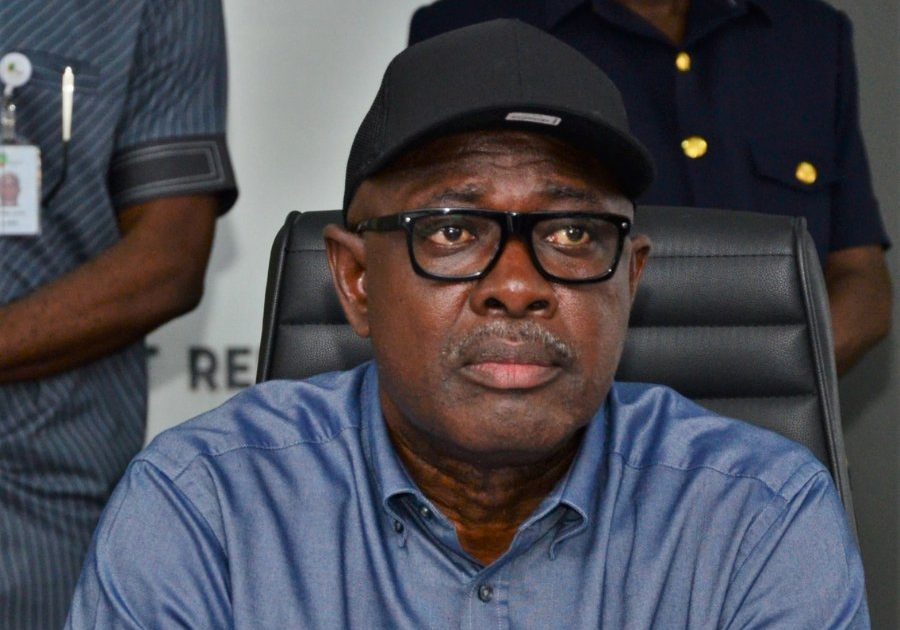Nigeria’s pursuit of a sustainable energy future gained significant momentum at the 2025 Nigeria Annual International Conference and Exhibition (NAICE) held in Lagos. The conference, themed “Building a Sustainable Energy Future: Leveraging Technology, Supply Chain, Human Resources and Policy,” brought together key stakeholders, including government representatives, regulators, and industry players, to address the pressing issue of energy poverty in Nigeria and Africa. Amidst a backdrop of global energy transition and various economic and geopolitical challenges, the conference served as a platform for collaborative discussions and commitments to achieving energy security. The overarching message was one of unity and a shared responsibility to navigate the complex energy landscape and unlock Nigeria’s vast energy potential.
A recurring theme throughout the conference was the vital role of technology in driving a sustainable energy future. Minister of State for Petroleum Resources (Oil), Heineken Lokpobiri, emphasized the necessity of continuous technological innovation in exploration, production, and operations management. He highlighted how advancements in areas like artificial intelligence and airborne surveys are enhancing efficiency, reducing costs, and minimizing environmental impact. This focus on technological advancement signals a recognition that Nigeria must embrace innovation to optimize its energy resources and compete effectively in the global market.
Human capital development emerged as another critical component of Nigeria’s energy strategy. Lokpobiri stressed the importance of training and equipping Nigerians with the skills necessary to thrive in the evolving energy sector. He also appealed to international engineering, procurement, and construction companies that had previously left Nigeria to reconsider their investment decisions, emphasizing the improvements in the business environment under President Bola Tinubu’s administration. This emphasis on human capital and attracting foreign investment underscores the understanding that a skilled workforce and external expertise are essential for realizing Nigeria’s energy ambitions.
The regulatory framework governing Nigeria’s energy sector also received significant attention. Gbenga Komolafe, Chief Executive of the Nigerian Upstream Petroleum Regulatory Commission (NUPRC), highlighted the Commission’s role not just as a regulator, but also as an enabler of industry growth. He pointed to the gazetting of 21 new regulations aimed at attracting investment, streamlining operations, and promoting best practices. Komolafe outlined the NUPRC’s commitment to fostering a stable, efficient, and forward-looking upstream sector that balances energy security with environmental responsibility and economic sustainability. This proactive regulatory approach signifies a move towards creating a more conducive environment for investment and operational excellence.
Focus was also placed on the midstream and downstream sectors. Farouk Ahmed, Chief Executive of the Nigerian Midstream and Downstream Petroleum Regulatory Authority (NMDPRA), emphasized the importance of strategic planning, continuous collaboration, and leveraging technology to build a sustainable energy future. He underscored the role of efficient delivery systems, policy clarity, and market liberalization in attracting investment and fostering growth. Ahmed reiterated the NMDPRA’s commitment to supporting these goals through effective regulation and stakeholder engagement. This focus on the entire energy value chain indicates a comprehensive approach to developing a robust and integrated energy sector.
Minister of State for Petroleum Resources (Gas), Ekperikpe Ekpo, highlighted the ministry’s focus on increased gas utilization as a key pathway to a sustainable energy future. He underscored the importance of digitalization, local supply chain development, and human capital investment in achieving this goal. Ekpo emphasized the need for market-reflective gas pricing, deepwater gas development, and domestic supply obligations to stimulate investor confidence and expand the sector. He called for collaboration among all stakeholders, recognizing that a collective effort is necessary to achieve Nigeria’s energy aspirations. This emphasis on gas utilization reflects a strategic decision to capitalize on Nigeria’s substantial gas reserves and promote a cleaner energy mix.
The 2025 NAICE conference served as a critical platform for articulating Nigeria’s vision for a sustainable energy future. The event demonstrated a strong commitment from policymakers, regulators, and industry players to collaborate on addressing the challenges of energy poverty and unlocking the nation’s energy potential. While acknowledging existing hurdles such as infrastructure gaps and regulatory complexities, the conference fostered a sense of optimism and a shared determination to translate discussions into tangible outcomes. The emphasis on technology, human capital development, a robust regulatory framework, and gas utilization suggests a comprehensive and forward-looking approach to building a secure and sustainable energy sector in Nigeria.














